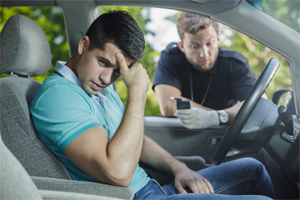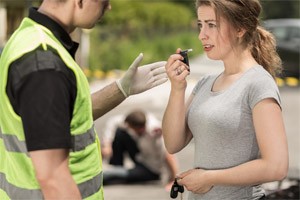With Thanksgiving just behind us, and holidays like Christmas, Hanukkah, and New Year’s Eve around the corner, we at the Law Office of Edward M. Janzekovich would like to remind you to be extra careful about drunk driving when it comes to going out and celebrating this festive and happy holiday season.
Not only should you be extra careful so that you can keep yourself and your loved ones safe, you should also be aware that police officers and government officials are on high alert for any potential drunk or intoxicated drivers during the holidays. One little mistake, such as thinking you can drive when your blood alcohol content (BAC) is actually above .08%, can result in serious consequences – such as fines, jail time, or loss of driving privileges – that affect you for years to come.
Heightened Police Activity and DUI Checkpoints
Last year, Pennsauken, Woodbridge, Spotswood, and Wall townships reported the most DWI arrests in the state between December 11, 2015 and January 1, 2016. This past Thanksgiving, NJ.com reported that at least 15 New Jersey towns planned to increase DUI patrols and checkpoints during the holiday weekend (http://www.nj.com/news/index.ssf/2016/11/where_nj_cops_are_increasing_dui_patrols_checkpoin.html). These included:
- Atlantic Highlands
- Aberdeen
- Belmar
- Hazlet
- Highlands
- Holmdel
- Keyport
- Keansburg
- Matawan
- Middletown
- Neptune
- New Brunswick
- North Bergen
- Union Beach
- Union City
Between now and New Year’s Day, police officers across the state will be on the look-out for any signs or drunk driving. Therefore, if you plan to go out and drink this holiday season, you should take a taxi, call an Uber, or pick a designated driver. Otherwise, even if you don’t get in an accident and hurt yourself or others, you run the risk of getting arrested for drunk driving every time you choose to have even one drink and get behind the wheel.
DUI Checkpoints, Sobriety Tests, and Taking a Breathalyzer
Police officers will be most likely to set up DUI checkpoints at the location of bars or other venues where lots of people will be drinking. This is important, because it means you could be randomly stopped and checked for signs of drunk driving, even if you do not display any erratic behavior on the road – such as swerving, speeding, or braking unexpectedly – just for going to certain venues during the holidays. In New Jersey, police officers are actually prohibited from stopping cars based on appearance alone at checkpoints, so cars will be detained in a pre-selected pattern such as every car or every third car.
That means that even if you are driving perfectly, you could be pulled over at a DUI checkpoint. Then, if the police officer has reasonable suspicion to believe you were driving drunk – such as smelling alcohol on your breath – you could be asked to take a field sobriety test or possibly even take a breathalyzer.
Once you’ve taken a breathalyzer, any BAC reading of .08% or higher can potentially be used as proof of guilt for a charge of DUI/DWI. That means that even if you were driving perfectly, and you do not believe you did anything wrong, you could still be convicted of driving under the influence of alcohol based on your breathalyzer results. As we’ve discussed in this blog before, whether you are functional or coordinated during a sobriety test is not a defense against a BAC at or above 0.08%
Therefore, the best advice we can give you this holiday season is to be careful. If you or someone you know is arrested or charged with a DUI or DWI, it is important to contact an experienced attorney immediately. A professional drunk driving lawyer will review your case and can help fight the charges against you.
New Jersey Drunk Driving Attorney Edward M. Janzekovich Is There for You This Holiday Season
If you or someone you know is charged for any crime relating to driving under the influence of alcohol or drugs, it is extremely important to contact an experienced DUI/DWI attorney who will explain what consequences you are facing in your specific situation. If you go to court, an experienced lawyer will also argue on your behalf and may be able to have the charges dropped entirely. Having an experienced drunk driving lawyer can make all the difference. To speak with an experienced New Jersey DWI/DUI lawyer about your situation, call us at 732-257-1137 or contact us online today. We serve clients throughout the state of New Jersey.







